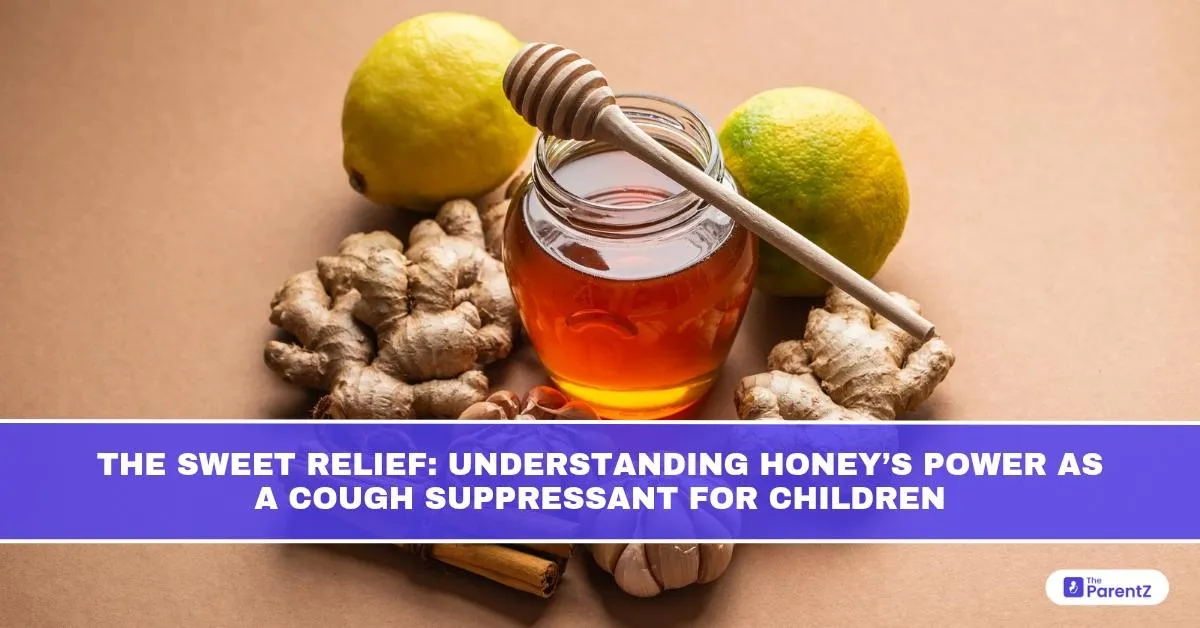A nighttime cough in children can feel endless, disturbing their sleep, affecting appetite, and worrying parents. While most pediatric coughs are due to viral infections and resolve on their own, many parents turn to home remedies for relief. One natural remedy that has stood the test of time is honey.
But is honey safe for all children? When should it be used? And what does science actually say?
What Causes Cough in Children?
Cough is a protective reflex, a way for the body to clear irritants from the airways. In children, the most common causes of cough include:
- Viral upper respiratory infections (cold, flu)
- Allergic rhinitis or postnasal drip
- Asthma
- Air pollution or secondhand smoke exposure
Dry, irritating coughs (especially at night) are common during or after a cold. They can linger for up to 2–3 weeks, even after the infection resolves.
In these cases, parents often seek non-medicinal ways to soothe the throat; this is where honey plays a role.
What Makes Honey Effective for Cough?
Honey is more than just a sweetener. It has:
- Antimicrobial properties: Contains hydrogen peroxide and polyphenols that inhibit bacteria
- Antioxidants: Reduce inflammation and oxidative stress in the throat
- Demulcent action: Coats and soothes the throat, reducing irritation and the urge to cough
- Osmotic effect: Helps draw water out of inflamed tissue, reducing swelling
A 2012 randomized controlled trial published in Pediatrics (PubMed ID: 22958776) found that a single dose of honey before bedtime reduced cough frequency and improved sleep in children with upper respiratory tract infections better than dextromethorphan, a common cough suppressant.
A 2021 review in the Cochrane Library confirmed similar findings, stating that honey may be superior to usual care or placebo for acute cough.
Guidelines on Honey Use in Children
Safe & Recommended:
- Children over 1 year of age
- Mild, dry, or nighttime cough
- Non-allergic children with no known sensitivity to pollen or bee products
Never give honey to:
Infants below 12 months
Reason: Risk of infant botulism, a rare but serious illness caused by Clostridium botulinum spores sometimes present in raw honey. According to the Indian Academy of Pediatrics and American Academy of Pediatrics, honey is strictly contraindicated in infants under 1 year.
How to Use Honey for Cough Relief in Children
Age 1–5 years: ½ teaspoon (2.5 ml)
Age 6–12 years: 1 teaspoon (5 ml)
Above 12 years: Up to 1.5 teaspoons (7.5 ml)
Give directly or mix in warm water, tulsi tea, or ginger water, 30 minutes before bedtime for best effect. Avoid heating honey directly as it may lose some active compounds.
Limit to 2–3 doses per day. More is not better.
Honey vs. OTC Cough Syrups
Many over-the-counter cough syrups in India contain multiple active ingredients, including antihistamines, bronchodilators, and decongestants. These can cause:
- Drowsiness or hyperactivity
- Increased heart rate
- Dry mouth or stomach upset
- Risk of overdose with incorrect use
The Indian Academy of Pediatrics (IAP) and WHO both discourage the use of OTC cough and cold medications in children under 4–6 years, especially for self-limiting viral illnesses.
Honey offers a safer, gentler option with better parent satisfaction and fewer side effects.
Precautions When Using Honey
- Always buy from a trusted source (certified, packaged, and hygienically processed)
- Don’t combine with other strong ingredients like pepper or garlic for small children
- Watch for any signs of allergic reaction, rash, itching, swelling, or vomiting
- Use cautiously in children with diabetes or under medical supervision
What Type of Honey is Best?
While many types of honey are available (raw, organic, forest, manuka), studies show that the exact type may not matter much for cough relief, as long as it is:
- Pure
- Non-adulterated
- Stored properly (cool, dry place)
Summary: When Honey Helps
| Situation | Is Honey Recommended? |
| Viral dry cough in child >1 yr | Yes |
| Barky or croup-like cough | No (needs doctor) |
| Wet/productive cough | Yes (symptom relief) |
| Allergic or asthma-related cough | Use with caution |
| Fever with cough in under 1 year | Strictly avoid |
Final Thoughts
Honey is not a cure, but it is a gentle, effective remedy to ease coughing, especially at night. Backed by research and widely accepted in pediatric practice, it offers comfort without chemicals for children above one year of age.
In the words of a pediatrician from AIIMS, Delhi:
“When parents ask me for something natural for their child’s cough, I often say, start with warm water, a quiet room, and a little honey if they’re old enough.”
When used right, this humble home remedy continues to bring sweet relief, without the risks of unnecessary medication.
3 Common FAQs
1. Can I use honey daily for general immunity in kids?
Yes, in small amounts (½–1 tsp), honey can be part of daily immunity support for children above 1 year, especially in the winter months.
2. Is it safe to mix honey with ginger or tulsi?
Yes, for older children (>2 years), you can mix honey with tulsi decoction or a drop of ginger juice. Avoid raw ginger for children under 2.
3. What should I do if my cough doesn’t go away even with honey?
If your child’s cough lasts more than 10–14 days, is accompanied by fever, wheezing, or breathlessness, consult your pediatrician. Persistent cough may indicate a different condition.





Be the first one to comment on this story.